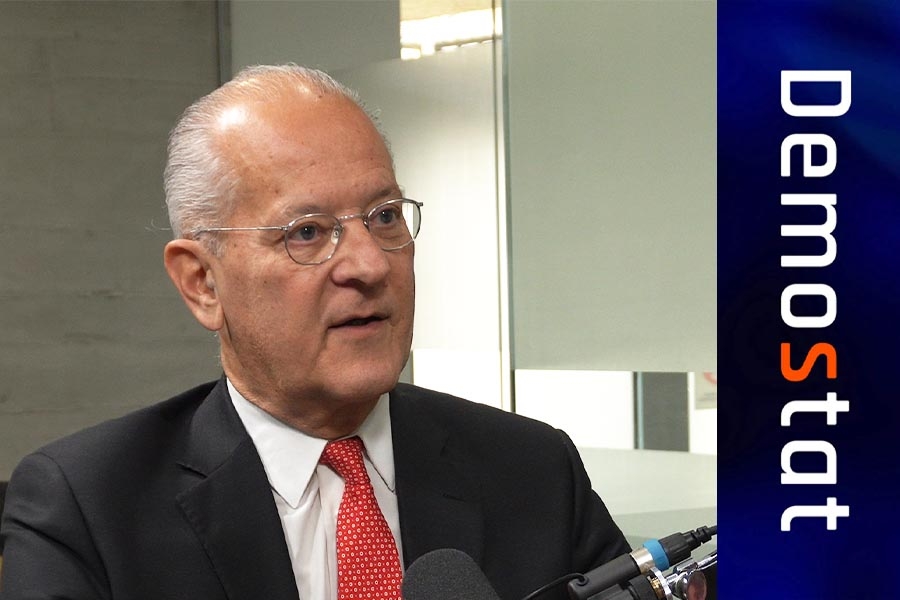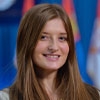Ivan Vejvoda, a permanent member of the Vienna Institute for Social Sciences, former vice president of the German Marshall Fund, and ex-advisor for European integration to Prime Minister Zoran Djindjic, discusses the political climate in Serbia. He observes that Serbia seemed to have progressed beyond the early stages of achieving freedom and fair elections after 2000. However, he notes a regression, likening it to going full circle backward. In the Demostat show "Half an Hour of Demostat," Vejvoda suggests that the tensions following the December 17th elections should be resolved internally, demonstrating the authorities responsibility. But if internal resolution isnt possible, international mediation should be considered. He remarks on the ongoing implementation of the Brussels Agreement and the Ohrid Annex, stating that its in Belgrades interest to normalize relations with Pristina fully. Despite the confusion often prevalent in society, partly caused by the government, Vejvoda believes that Serbia is decidedly moving towards the West, albeit slower than it should.

Ivan Vejvoda, a permanent member of the Vienna Institute for Social Sciences, former vice president of the German Marshall Fund, and ex-advisor for European integration to Prime Minister Zoran Djindjic, discusses the political climate in Serbia. He observes that Serbia seemed to have progressed beyond the early stages of achieving freedom and fair elections after 2000. However, he notes a regression, likening it to going full circle backward. In the Demostat show "Half an Hour of Demostat," Vejvoda suggests that the tensions following the December 17th elections should be resolved internally, demonstrating the authorities responsibility. But if internal resolution isnt possible, international mediation should be considered. He remarks on the ongoing implementation of the Brussels Agreement and the Ohrid Annex, stating that its in Belgrades interest to normalize relations with Pristina fully. Despite the confusion often prevalent in society, partly caused by the government, Vejvoda believes that Serbia is decidedly moving towards the West, albeit slower than it should.

We thought we had passed the infancy of conquering the space of freedom and fair and honest elections after the year 2000 and the fall of the disastrous Milosevic regime in the nineties and the countrys downfall in every respect - economic, social, political, and ostracism from the international community.
"We did reach a commendable level of electoral quality, so much so that after the elections in the 2000s until 2012, we went home, finishing that election night by midnight knowing who won, who lost, and the competitors congratulated each other," said Vejvoda.
Now we are going back full circle, says Vejvoda, adding that after the elections on December 17th, there were no reliable exit polls, and we again have distrust in the entire process, which international organizations, primarily the OSCE, ODIHR, and the European Parliament, have noted for irregularities.
Asked how we again arrived at general distrust, Vejvoda says that there is no independence of institutions, that we have lost the separation of powers, that the media, primarily national frequencies, are under the influence of the government, while independent media, cable television, only reach 30-35% of the population. There is no respect for the opposition.
Commenting on the assessments of international observers, Vejvoda said that they noted that before the elections themselves, there was an unequal situation in the media, that the president of the state was omnipresent, constitutional principles were not respected, and state institutions were harnessed in a campaign of functionaries, and that the opposition could not express their voice equally in the media.
Asked whether he believes there are conditions for international mediation in the dialogue between the government and the opposition to change the current situation, Vejvoda says he thinks everything should be done to solve the problem within society, which would show responsibility on the part of both the government and the opposition, but primarily the government.
However, if this is not possible, international mediation is probably necessary, says Vejvoda, reminding that Serbia is a member of the OSCE, Council of Europe, and UN.
“One cannot help but remember that we are now in a situation that we had long overcome after the 1996 elections, which Miloševi? tried to thwart. They were resolved by international intervention; the mediator was Filipe Gonzales and the famous lex specialis was adopted, which annulled Milosevics decision, recognizing the elections, and the opposition won 55% of the cities in Serbia," Vejvoda noted, reminding that this happened after three months of protests, involving students, supported by Patriarch Pavle.
Vejvoda says that after the December elections, the situation is primarily questionable in Belgrade.
“My suggestion would be to resolve it peacefully, to say that the government in Belgrade cannot be formed because Dr. Branimir Nestorovics party, which is the balance, has not decided to be with the SNS, to say that the government cannot be formed and this is the most peaceful way to say that we are going for a repeat of the elections, of course under conditions that would be fairer and freer," said Vejvoda.
Asked to comment on the statements of the president and prime minister that Russian services informed them that services of a Western country participated in organizing the protests, Vejvoda says he does not believe it and that everyone constructs the situation as they wish to present it to the public.
“I dont believe there is any desire for some revolutionary government overthrow. That doesnt hold water, but the people say their dignity and voice should be respected. I do not believe that someone wanted to violently change the government, especially since the ruling party won convincingly in the national elections," Vejvoda points out.
He says that the legitimate demands for a repeat of the elections at all levels due to election fraud are reminded by President Aleksandar Vucics statement, while he was in the opposition, that elections should be repeated if even a single vote is stolen.
Implementation of the Brussels and Ohrid agreements is proceeding
Vejvoda says that the implementation of the Brussels Agreement and the Annex from Ohrid is moving usually, noting that the Government of Serbia has allowed cars with Kosovo license plates to travel unhindered through Serbian territory.
“Where there is a will for a peaceful solution, it is implemented," said Vejvoda.
He emphasizes that Serbia and our society should normalize relations with Kosovo because peace is necessary for a promising future for the region and to attract additional investments.
“This country depends on investments and trade with the EU and other Western countries; 65% of our trade is with the EU. The main part of the investments is with Germany; Germany creates 100,000 jobs in Serbia. And who is to be begged is not to be scolded," says Vejvoda.
He notes that tensions and distractions occasionally arise, so confusion is created, opening questions among citizens about whether the West loves us, whether we want to go there, whether we are safe, and what they demand from us...
“However, we are constantly going in that direction. Much slower than we would like, but we are going," says Vejvoda.
He says that Serbia will have to deal much more seriously with the rule of law, separation of powers, independence of the judiciary and prosecution, and the media situation, adding that the last EU-Western Balkans summit set stricter rules.
“In that sense, the degree of movement towards the basic democratic values, which are not only EU values but also in the interest of citizens, to have an orderly society where we can trust institutions, to know that they work for us, not us for them,” Vejvoda emphasized.
Asked whether democratic values in Serbia are still low on the EUs agenda compared to other issues, such as Kosovo, Vejvoda says it is in the interest of Serbian citizens for our society to be more orderly and democratic.
“The Kosovo issue indeed is one of the key unresolved issues in the world for Europe," says Vejvoda, adding that the Ukrainian war is the priority, followed by the war in the Middle East and the Kosovo issue.
He states that the Russian invasion of Ukraine has awakened Europe, which has realized that it must continue with its geostrategic and geopolitical consolidation with the tiny region of the Western Balkans, home to 16 million people.
He says that the region is in the same package as Ukraine and Moldova, which have received dates to start negotiations.
Asked about some announcements that the region could enter the EU by 2030, Vejvoda says that when he was an advisor to Prime Minister Zoran Djindjic, he talked about 2007 as a possible entry date and would no longer mention dates.
"Angela Merkel said the region is progressing at a snails pace, Serbia has not opened chapters, clusters for two years, we are progressing very slowly, but I think it will be much more strictly assessed," said Vejvoda, adding that if Serbias priority is EU membership, we must measure up to their demands.
He adds that no one is asking Serbia to recognize Kosovo but to normalize relations, and that it is necessary to provide the highest guarantees for the rights of Serbs living in Kosovo, as well as for Serbian sanctities, heritage, and the Serbian Orthodox Church in Kosovo, which largely exists in Ahtisaaris plan.
On the observation that the moves made by Vucic, such as the agreement with Pristina, and diversification in the energy sector, are in line with the European agenda but that there is an anti-European campaign spreading from the top of the government, Vejvoda says that the SNS is a so-called “catch-all” party, which wants to cover the entire spectrum of political opinion – from the most western to the extreme right, in the worst sense of the word.
“This country is heading west, in a more or less covert way, and is trying to satisfy its populist-nationalist wing of the electorate by talking to them about Russia, China... This is the basis on which confusion is created,” says Vejvoda.
He says that people do not understand that, despite the imperfections of the EU, the Union is where we feed from, where our bread comes from, where we socio-economically prosper.
On the other hand, Russia is just trying to point out the weakness of the EU, the weakness of NATO, and the weakness of democracy, as well as the fact that Europe is failing to integrate us, says Vejvoda.
China, however, has a much longer-term policy and is working on infrastructure projects, where it mostly brings in its workers.
“My big criticism of the EU is that it does not deal with geoeconomics like geopolitics. Why wouldnt Europe build highways for us, Putins bridge? But, Europe has woken up; they financed the Belgrade-Niš railway, the highway to Pristina, as well as with a growth package of six billion euros,” emphasized Vejvoda.
He notes that thats why there must be a clearer message from the top of the government regarding the fact that Serbia prospers most and lives off the EU and Western investments, which in no way means that it should not have good relations with China and Russia.
In all societies there are issues that are rather being skipped. Certain...
The neoliberal path, started in 2001, has led to especially bad results in Serbi...
For centuries, the region was subsumed within the Ottoman and Hungarian Empires,...
"Serbia has returned to the systemic and anti-systemic position of the political...
In reality, Serbia is closer than ever to NATO. In the course of the last five y...